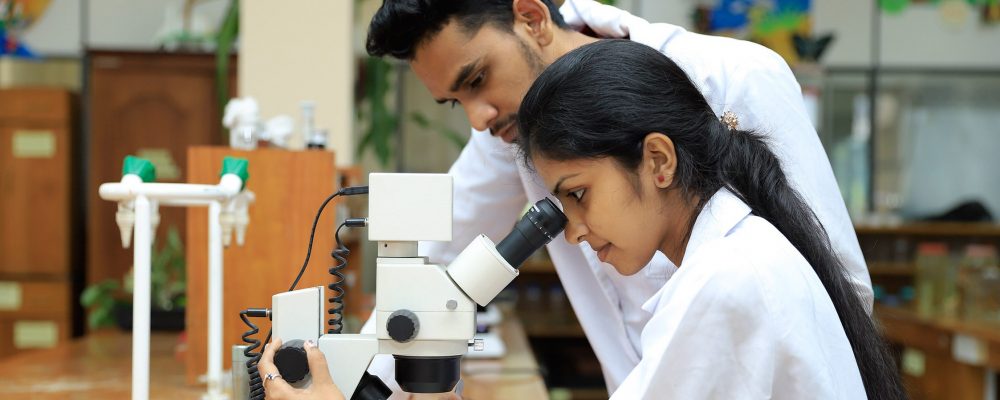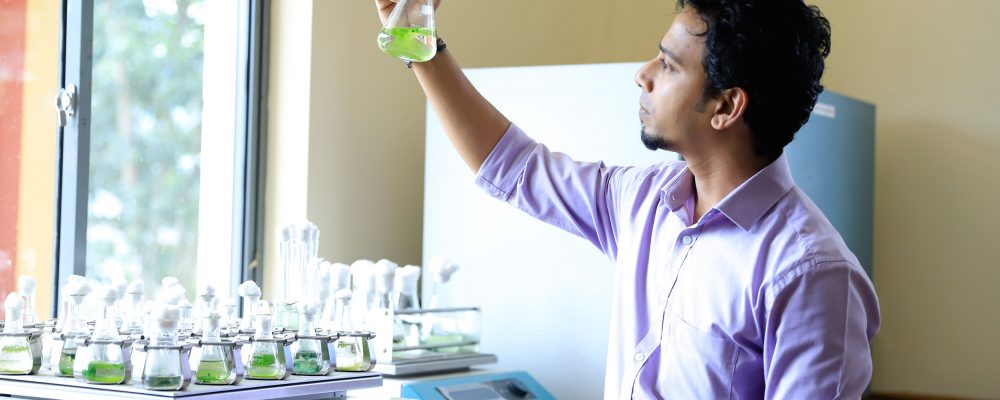Collaboration between universities and industries is critical for skills development, the generation, acquisition, and adoption of knowledge (innovation and technology transfer), and the promotion of entrepreneurship. Uva Wellassa University has given greater attention to the interaction between university and industry, particularly to produce entrepreneurial graduates and graduates readily employable by the private sector. The challenges are mainly due to the absence of an enabling ecosystem that is needed for facilitating an active interaction among various actors involved in the technology transfer activities. An ecosystem coupled with a fully-fledged infrastructure is essential in a bid to maintain an interaction between Academia and Industry.
A framework of Business Incubators, particular a Faculty Technology Transfer Center (FTTC), has already approved under the Accelerating Higher Education Expansion and Development (AHEAD) project under the Activity 5 “Building-up a strong University-Industry relationship in order to equip graduates with knowledge and skills, that essential for a successful professional, scientific and industrial career, via establishing a FTTC” to provide “Technology Transfer” support to start-ups, Small and Medium Enterprises (SMEs) and existing businesses via signing the memorandum of understanding (MOU) between the Industry and the University. This helps young entrepreneurial firms access new knowledge, expertise, and industrial networks. The FTTC attempts to bridge the gulf between “Technology Providers” and “Technology Seekers”, lack of awareness about emerging technologies and related opportunities, etc. The direct beneficiaries are the inventors (mostly academic experts and students), the University System, the Industry and the economy in general. The services and benefits which are expected to render through FTTC are as follows,
Upgrading and troubleshooting existing products: The FTTC can make use of the in-house resources, notably human resources (e.g. employing undergraduates) and infrastructure, to upgrade the existing products and troubleshooting.
Innovating new products (R&D): New products, services, and concepts are innovated as per the requests made by the industry. The FTTC is expected to take the outside-in approach in order to address the industry requirements.
In-house Inventions and innovations: In contrast, a greater focus will be shown towards in-house inventions and innovations (R&D) that allow companies/business firms to capture capitalize and commercialize. The benefits of Business Incubators are two-fold, in which Industries and Academia are benefitting from each other. A need for Business Incubator, in particular a FTTC, is deemed essential for many reasons.
Employment opportunities for undergraduates: The FTTC enables undergraduates to work while being in the university. This can also be amalgamated with the Industrial Training program undergoes by the students (e.g., it is evident that certain universities have allowed businesses to build R&D labs within the university premises).
Employment opportunities for the general public: As far as the aforementioned three services are concerned, it is probably several employment opportunities will be created (e.g. administrative officers, lab assistants, etc.)
Employing university resources for a fee: As far as the aforementioned three services are concerned, particularly innovating new products (R&D) as per the requests made by the industry, the university is in a position to render its services for a fee. The university charges a fee for developing products, innovations and occupying its premises. The income generated through such activities can subsequently be utilized for future advancements of the university without fully depending on the government funds.
Issues and challenges in the absence of a favorable ecosystem: Despite it being beneficial and economical, there is a general grievance that the interaction between Academia and Industry is difficult. The proposed incubator will diminish that difficulty and open opportunity for a smooth collaboration with two parties.
Nascent stage of research and patenting culture: The number of patents filed is an indicator of the innovation and technology potential of any country. A mechanism (business incubator), capable of bridging the aforementioned gap, is appeared to be essential given the higher number of researches and patents filed. Hence, there are basic issues relating to increasing the focus on research initiatives and also to promote research careers aggressively.
“For you have need, we have seeds”





